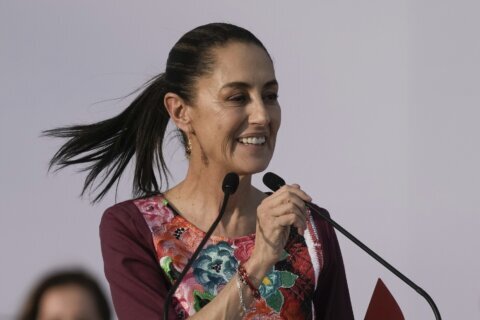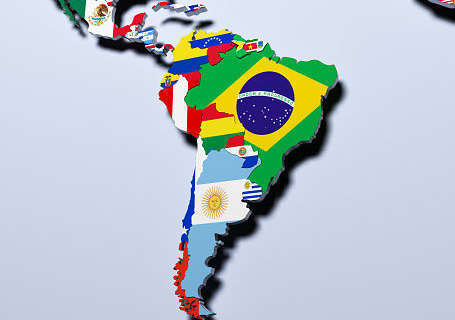MEXICO CITY (AP) — Mexican President Andrés Manuel López Obrador has long criticized independent regulatory, watchdog and transparency agencies, and on Monday he defended the idea of eliminating them entirely.
López Obrador calls the bodies wasteful and unnecessary, and says the money saved could be spent on health care. But he is also resentful of outside oversight, whether by government commissions or non-governmental organizations.
As a president who considers himself on a crusade to morally reform Mexico, he also resents anyone who claims to have more moral authority than him.
López Obrador has mentioned cutting funding for the Institute for Access to Information (INAI), the Federal Telecommunications Institute (IFT) and the anti-monopoly watchdog agency, the Federal Commission for Economic Competition (COFECE).
IFT, the telecommunications institute, oversees issues like the fair use of cellphone, TV and radio frequencies, and plays a role in the U.S.-Mexico-Canada trade agreement, so it’s not clear that agency could be eliminated.
Transparency and civic groups say the agencies, founded by López Obrador’s predecessors, represent victories for Mexico’s still-young democracy, by exposing the back-room deals, secrecy and corruption that long dominated government and business.
“It is contradictory for an administration that promises to be the most transparent in the country’s history, (then) proposes eliminating an institution that guarantees transparency and access to information,” said the civic group Mexicans Against Corruption in a statement.
“Today it is the INAI, COFECE and IFT. Tomorrow it will be the INE, the Bank of Mexico and the CNDH,” it added, referring to the independent election agency, the central bank and the National Human Rights Commission.
Because Mexico was ruled for seven decades by a single party, there was so little transparency that Mexico had to be forced to even make the central bank independent after several presidents used it to fund their spending programs and drove the country into financial crises.
In the 1990s, when the opposition first won a majority in Congress, the government began creating independent agencies to provide a counterbalance in everything from fair elections to rights abuses.
The INAI functions like the Freedom of Information Act in the United States, providing a channel for journalists and others to request information. The government either has to release the data or explain why it won’t, and those decisions can be appealed.
López Obrador said Monday that the INAI isn’t necessary, demonstrating that at his daily morning news conference by releasing a document that a reporter had requested, but not received, through the INAI.
“If we have permanent communication, if the right to information is guaranteed, that is taken care of and, if i may mention it, it is not necessary to have a whole apparatus that costs so much — a billion pesos ($50 million) to support the transparency institute,” López Obrador said.
He said the 1990s and 2000s, when most of the agencies were created, coincided with the greatest surge in corruption and privatization of state-owned companies, and accused the oversight bodies of doing nothing to impede that and acting as cover for it.
He has proposed cutting funding for the agencies, apparently including energy regulatory bodies, and folding their duties into existing government departments to save money.
The president probably has answered more direct questions from the press than all his predecessors combined, at more than 500 daily news conferences so far. But while López Obrador talks freely, it is often difficult to obtain hard data, such as environmental impact or feasibility statements for his pet building projects.
Transparency advocates say the agencies’ independence is exactly what makes them trustworthy.
“Disappearing the IFT would also go against the U.S.-Mexico-Canada Agreement (USMCA), which is essential to alleviate the worst economic crisis in the region in decades and, for the umpteenth time, it would also send to national and foreign investors the message that economic decisions are made according to presidential whims and not according to the law,” the civic group Causa en Común (Common Cause) said in a statement.
Copyright © 2024 The Associated Press. All rights reserved. This material may not be published, broadcast, written or redistributed.







